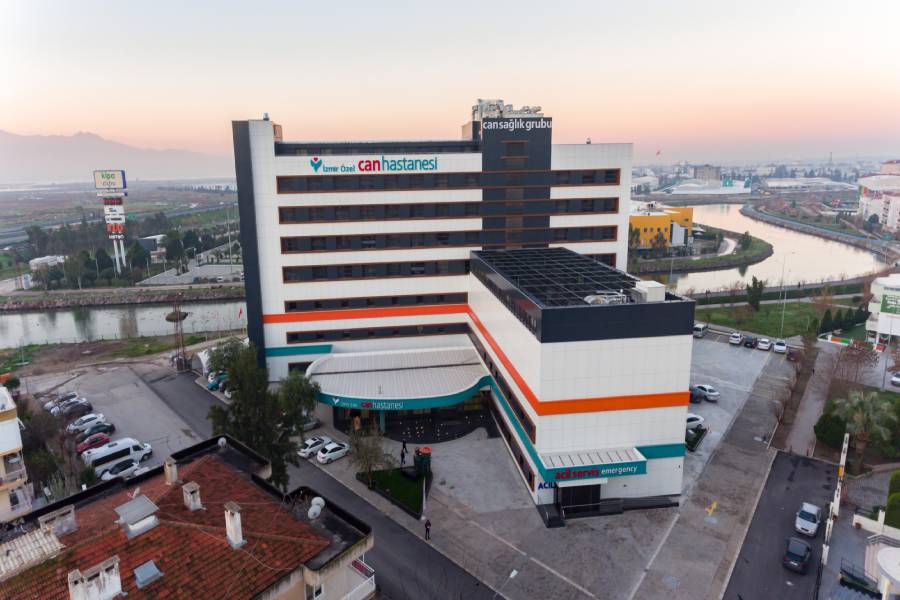Do you need b12 injections for gastric bypass?
Categorised in: Genel, HEALTH GUIDE
Published Date:
Gastric bypass surgery can change lives for those fighting obesity and health problems. It helps with weight loss and improves life quality. But, it’s important to take good care after surgery for the best health results. Managing nutrition is key, especially since the surgery can affect how the body absorbs vitamins and minerals like vitamin B12.
Many people who have had gastric bypass surgery don’t get enough vitamin B12. This is because their digestive system has changed. This article will talk about why vitamin B12 is important, the risk of not getting enough after surgery, and when B12 injections might be needed as part of aftercare.
What is the Effect of Gastric Bypass Surgery on Nutrient Absorption?
Gastric bypass surgery is a key treatment for severe obesity. It makes a small pouch at the stomach’s top and connects it to the small intestine. This bypasses a big part of the stomach and the small intestine’s upper part. The surgery helps with weight loss and improves health, but it changes the digestive system, affecting nutrient absorption. This surgery means less nutrient absorption. Food bypasses where most nutrients are absorbed, leading to deficiencies. Patients might lack vitamins and minerals like vitamin B12, iron, calcium, and vitamin D. The surgery also changes how the body makes digestive enzymes and bile acids, making nutrient absorption harder.
Vitamin B12 is often affected by this surgery. The body absorbs vitamin B12 with the help of intrinsic factor, made in the stomach. After surgery, the stomach’s smaller size and bypassed intestine reduce intrinsic factor production. This makes it harder to get vitamin B12 from food, raising the risk of deficiency.
To avoid nutrient shortages and stay healthy after surgery, patients must watch their nutrient levels closely. They should take daily multivitamins, calcium, and vitamin B12 supplements. Regular blood tests can spot nutrient deficiencies early, allowing for quick action and changes to supplements as needed.
What is the Importance of Vitamin B12?
Vitamin B12 is key for good health and well-being. It helps with red blood cell production, nerve function, and DNA making. Without enough vitamin B12, people can face issues like anemia, nerve damage, and brain problems. Vitamin B12 is vital for making healthy red blood cells. These cells carry oxygen to all parts of the body. Without enough vitamin B12, making red blood cells drops, leading to anemia. Anemia can cause tiredness, weakness, shortness of breath, and pale skin.
Vitamin B12 also keeps the nerves working right. It helps make the myelin sheath around nerves. Without enough B12, nerves can get damaged. This can cause numbness, tingling, balance issues, and brain problems. Keeping vitamin B12 levels up is key to preventing anemia. It helps lower the risk of anemia and its symptoms. This is especially true for those who had gastric bypass surgery. This surgery can make it harder to get vitamin B12 from food.
It’s crucial for people, especially after gastric bypass surgery, to check their B12 levels. Talking to a healthcare provider can help find the best way to keep B12 levels right. This might mean eating differently, taking supplements, or getting B12 shots.
Vitamin B12 Deficiency After Gastric Bypass Surgery
Gastric bypass surgery helps with weight loss but can also increase the risk of vitamin B12 deficiency. This happens because the surgery changes how the body absorbs nutrients, especially vitamin B12. The surgery skips parts of the digestive tract where a key protein for B12 absorption is made. This protein, called intrinsic factor, helps the body absorb vitamin B12. But after gastric bypass, making less intrinsic factor means less B12 gets absorbed. Even eating a lot of B12 doesn’t help if the body can’t use it because of this. Not having enough vitamin B12 can cause serious health problems. These include nerve issues, anemia, and problems with thinking. In some cases, it can lead to pernicious anemia, where the body can’t make enough red blood cells.
It’s important for patients and doctors to know about this risk. Checking B12 levels often and using supplements like B12 shots or high-dose pills can prevent these problems. Taking steps to keep B12 levels up helps gastric bypass patients stay healthy over time.
The Role of B12 Injections in Post-Gastric Bypass Care
After gastric bypass surgery, patients face a higher risk of vitamin B12 deficiency. This is because their digestive system has changed. To help, doctors often suggest B12 injections. These injections put vitamin B12 directly into the bloodstream, skipping the digestive system. This is great for people who had gastric bypass surgery. They might not get enough B12 from food or oral supplements. Intramuscular injections make sure they get enough of this important vitamin.
Doctors usually tell patients to get B12 injections every month. The number of injections and how often you get them can change based on your needs. Some patients might also use sublingual supplements or high-dose oral supplements. But, injections are often the most effective way to get enough B12.
It’s important for gastric bypass patients to talk to their doctors about the best way to get B12. Regular blood tests can check if you have enough B12. By using B12 injections or other supplements, patients can stay healthy and avoid B12 deficiency problems.
Alternative Methods for Maintaining Vitamin B12 Levels
B12 injections are a common way to treat vitamin B12 deficiency after gastric bypass surgery. But, there are other ways to keep vitamin B12 levels up. For example, eating fortified foods can help. Many breakfast cereals, breads, and plant-based milks are now made with extra B12. Sublingual tablets are another easy option. These tablets dissolve under your tongue, letting your body absorb the B12 directly. You can buy these supplements over-the-counter, making it simple for gastric bypass patients to keep their B12 levels up.
Nasal sprays are also available for vitamin B12. They work by spraying a liquid B12 into your nose, which then goes into your bloodstream. Nasal sprays are good for people who have trouble with other supplements. How well these methods work can differ from person to person. Not everyone absorbs B12 the same way from foods, tablets, or sprays. It’s important to talk to your doctor to find the best way for you. Regular blood tests can also help check your B12 levels.
By finding the right mix of supplements, gastric bypass patients can keep their vitamin B12 levels healthy. This helps avoid problems that come from being deficient in B12.
Monitoring Vitamin B12 Levels After Gastric Bypass Surgery
After gastric bypass surgery, it’s key for patients to check their vitamin B12 levels often. Blood tests are the best way to see if levels are right. This helps catch problems early. Tests should be done as the doctor says. Patients need to watch for signs of a B12 deficiency. Look out for feeling tired, weak, or numbness in your hands and feet. If you notice these, tell your doctor right away.
It’s also important to talk to your healthcare team about how you’re feeling. Regular check-ins let you discuss blood test results and adjust your care plan if needed. This helps keep your vitamin B12 levels in check.
By keeping an eye on your B12 levels and watching for signs of deficiency, you can help prevent serious health issues. Working closely with your healthcare team is key to a successful outcome after gastric bypass surgery. This teamwork helps keep you healthy and well.
Consulting with Your Healthcare Provider About B12 Injections
After gastric bypass surgery, it’s key to work closely with your healthcare team. They help figure out the best way to keep your vitamin B12 levels right. This depends on your pre-surgery B12 levels, what you eat, and your overall health.
By talking with a our healthcare expert, you can get a treatment plan made just for you. They look at your current B12 levels and talk about B12 injections. They’ll tell you how much you need and help you get enough of this important nutrient. we will also explain how to keep track of your B12 levels and change your treatment if needed. This includes regular checks and adjusting your plan as necessary.
Talking openly with your healthcare team is key to good care after gastric bypass. You should share any worries or questions about B12 shots and managing nutrients. With a strong team and a plan made just for you, you can keep your B12 levels healthy and feel great long-term.
Long-Term Nutrient Management After Gastric Bypass
Vitamin B12 injections are key for staying healthy after gastric bypass surgery. But, it’s also important to focus on a full plan for managing nutrients. This means eating foods packed with nutrients and taking a special multivitamin made for bariatric patients. Eating a balanced diet with lean proteins, fruits, veggies, and whole grains helps get all the vitamins and minerals the body needs. But, after gastric bypass, it can be hard to get enough nutrients from food. That’s why taking multivitamins is important to avoid shortages and stay healthy.
Bariatric multivitamins are made just for gastric bypass patients. They have more of important nutrients like iron, calcium, and vitamin D, which are hard to absorb after surgery. Taking these supplements along with vitamin B12 shots helps prevent nutrient shortages over time. It’s important to see a healthcare provider and a dietitian regularly to check on nutrient levels and adjust supplements if needed. They can help with dietary changes to make sure you’re eating foods that support your health. With the help of a medical team and a good nutrient plan, gastric bypass patients can keep their nutrient levels right and enjoy the benefits of losing weight.
Gastric Bypass in Turkey
Turkey is now a top choice for medical tourism. Many people go there for quality, yet affordable healthcare, including gastric bypass surgery. It’s key for healthcare providers in Turkey to stress the need for support after surgery, especially with vitamin B12 supplements.
Before gastric bypass surgery in Turkey, patients should talk about vitamin B12 supplements with their surgeon and healthcare team. Turkey’s medical tourism centers must offer full care before and after surgery. This includes advice on managing nutrients and possibly needing B12 injections or supplements.
After surgery, patients need regular checks on their vitamin B12 levels. Can Hospitals team in Turkey should help create personal plans for supplements. This could be through injections, pills, or changing their diet. Also, Turkey’s medical tourism centers should help patients even after they leave the country. They might work with doctors back home, offer telemedicine, or give advice on managing nutrients long-term.
By focusing on vitamin B12 supplements and full support after surgery, Turkey’s healthcare providers can help gastric bypass patients stay healthy. They can keep them well, even after they go back home from their medical trip.
Patient Experiences: Gastric Bypass Success Stories
Many gastric bypass patients have shared their stories about vitamin B12 injections. They offer valuable insights and support to others on similar journeys. These stories show how important it is to manage nutrients well after surgery.
But, changing your life and routines after surgery can be tough. Some patients might feel uneasy about giving themselves injections or forget when it’s time. Getting past hurdles is key after surgery, and many find support in the gastric bypass community.
By sticking to good nutrition and getting support when needed, patients can greatly improve their quality of life and stay healthy for years.
Conclusion: The Importance of Vitamin B12 Supplementation for Gastric Bypass Patients
Gastric bypass surgery can change a person’s life by helping them lose weight and improve their health. But, it can also affect how the body absorbs nutrients, like vitamin B12. Without enough vitamin B12, long-term health and quality of life might suffer.
That’s why taking vitamin B12 supplements is important after gastric bypass surgery. Supplements can come in the form of injections or other methods. By working with a healthcare provider and knowing why B12 is important, patients can keep their levels up. It’s important to check vitamin B12 levels often and adjust supplements as needed to avoid deficiency and health problems.
Patients who focus on their nutrition and follow their healthcare provider’s advice on B12 supplements tend to do well long-term. By being proactive about their nutrition, they can stay healthy, enjoy a good quality of life, and make the most of their weight loss.

Why British Citizens Choose Turkey for Health Services?
British citizens are increasingly opting for Turkey when seeking medical treatments due to a combination of superior healthcare services, affordability, […]

Psychological Effects of Genital Aesthetics on Body Image
In a society increasingly focused on physical perfection, the realm of genital aesthetics has surfaced as an area of both […]

Common Concerns About Genital Plastic Surgery
Genital plastic surgery, a burgeoning field within the realm of cosmetic enhancements, has witnessed a notable surge in popularity. Procedures […]

In which cases is labiaplasty necessary?
Labiaplasty, a procedure that has recently garnered significant attention, involves the surgical reduction of the labia minora. This operation, also […]

Healthy Recovery Process After Genital Aesthetic Surgery
Day Things To Do Things to Avoid 1-7 Days – Bed rest – Using medications recommended by the doctor – […]